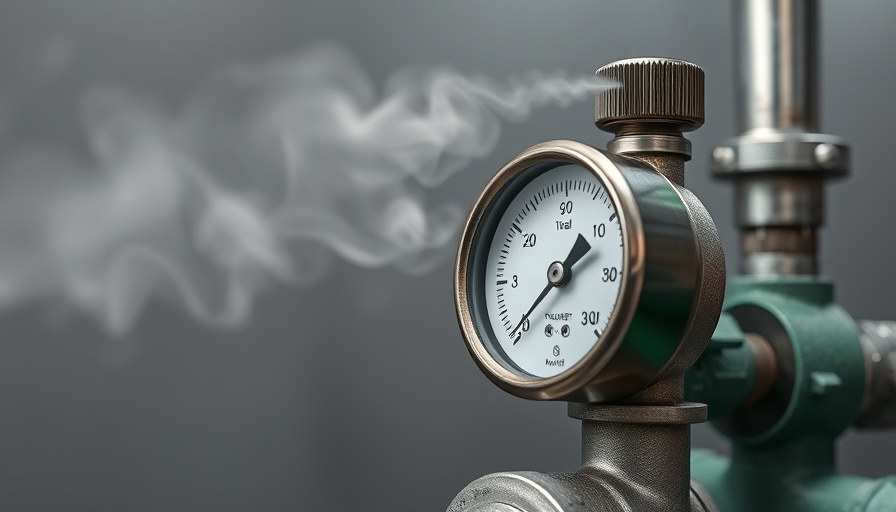
Understanding the Risks: Why Gas Leak Awareness Matters
Natural gas is a staple in many homes across America, powering appliances and water heaters due to its efficiency and cost-effectiveness. However, the risks tied to gas leaks are significant. With 125,000 gas leak calls made annually, an alarming 25% increase since 2007, understanding how to detect a gas leak becomes crucial for every homeowner and renter. Ignorance is not bliss when it comes to gas safety; recognizing potential increases in carbon monoxide levels associated with unmanaged gas appliances is equally critical for safeguarding your well-being.
The Importance of Gas Leak Detectors in Your Home
Are you equipped to handle a gas leak before it strikes? Installing a gas leak detector is a necessary first step. These devices are engineered to pick up on combustible gases and alert you before the situation escalates to dangerous levels. You can find portable leak detectors at affordable prices, making it easy to keep your family safe. Remember, a gas leak detector is not the same as a carbon monoxide detector; you should install both to ensure you are protected against multiple hazards.
Simple Signs: How to Detect a Gas Leak in Everyday Life
Knowing how to identify a gas leak can be straightforward if you know what to look for:
- Smell for rotten eggs: The addition of mercaptan to natural gas gives it a distinct odor reminiscent of rotten eggs, serving as a primary alert signal.
- Listen for hissing sounds: A hissing sound near gas lines or appliances might indicate a leak that could easily be overlooked.
- Look for bubbles: Mixing soap with water can reveal leaks when poured over suspected areas; bubbles indicate escaping gas.
While these signs can be lifesaving, they should never replace having proactive safety measures like detectors in place. Staying vigilant and informed can prevent many accidents.
Creating a Safer Living Environment
The overall health of your home matters—from the comfort and efficiency of your appliances to the potential hazards lurking behind the scenes. Making a habit of monitoring gas usage can help you catch anomalies early. If you notice unexpected spikes in gas consumption, investigate further—you may be detecting the early signs of a leak.
Action Steps for Homeowners and Renters
Taking initiative to educate yourself about gas leaks not only protects you but also reassures your loved ones and visitors. Familiarize yourself with safety protocols, encourage fellow residents to be vigilant, and consider incorporating routine checks into your property maintenance schedule. Collaboration and preparation can make a world of difference.
Taking steps toward gas leak detection not only protects your physical space but also contributes to a safe community overall. Engage with local resources that offer training or seminars on safety measures regarding gas leaks and carbon monoxide emergencies. Knowledge is power, and through proactive measures, you can create a safer environment for all.
Stay equipped and aware—your safety depends on it. Explore emergency contact numbers and trust your intuition. Make that investment; an ounce of prevention could save your life.
 Add Row
Add Row  Add
Add 




Write A Comment